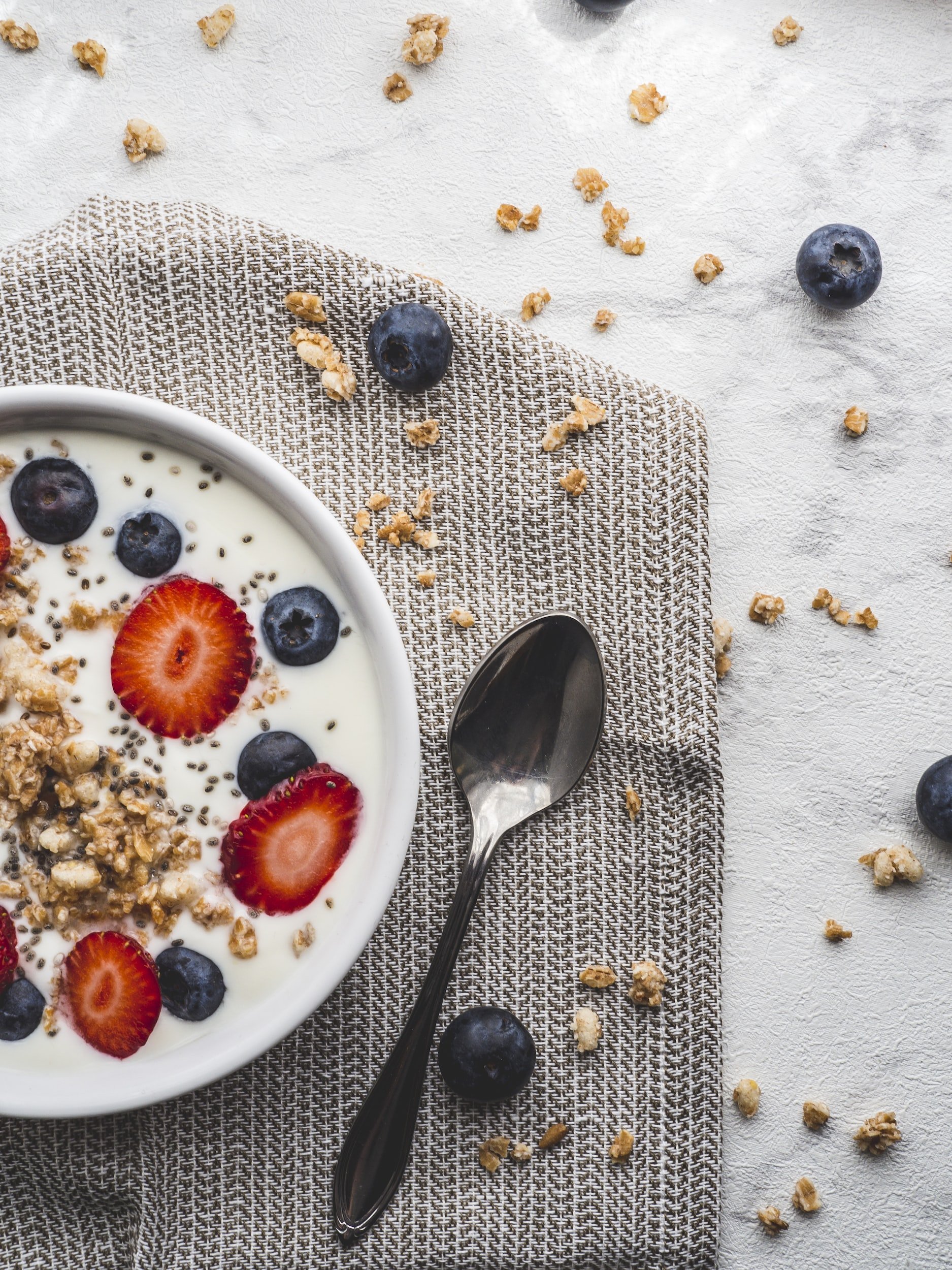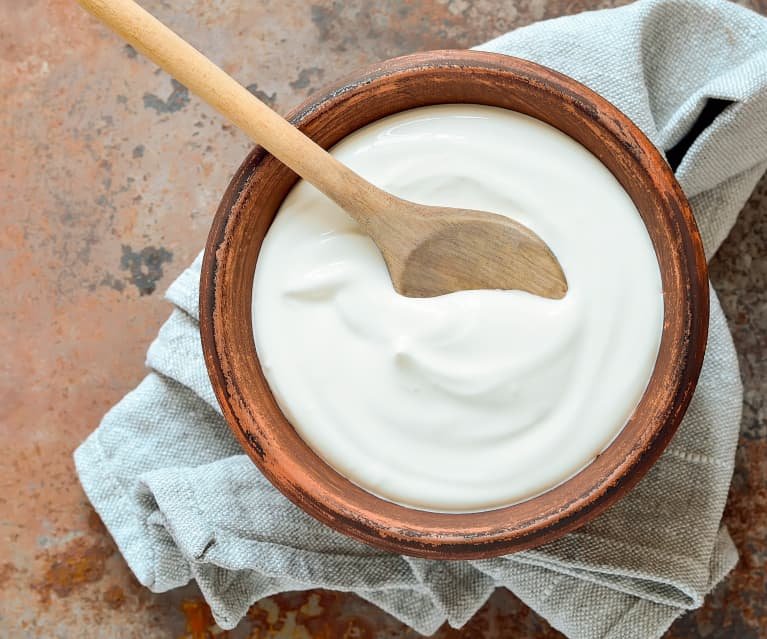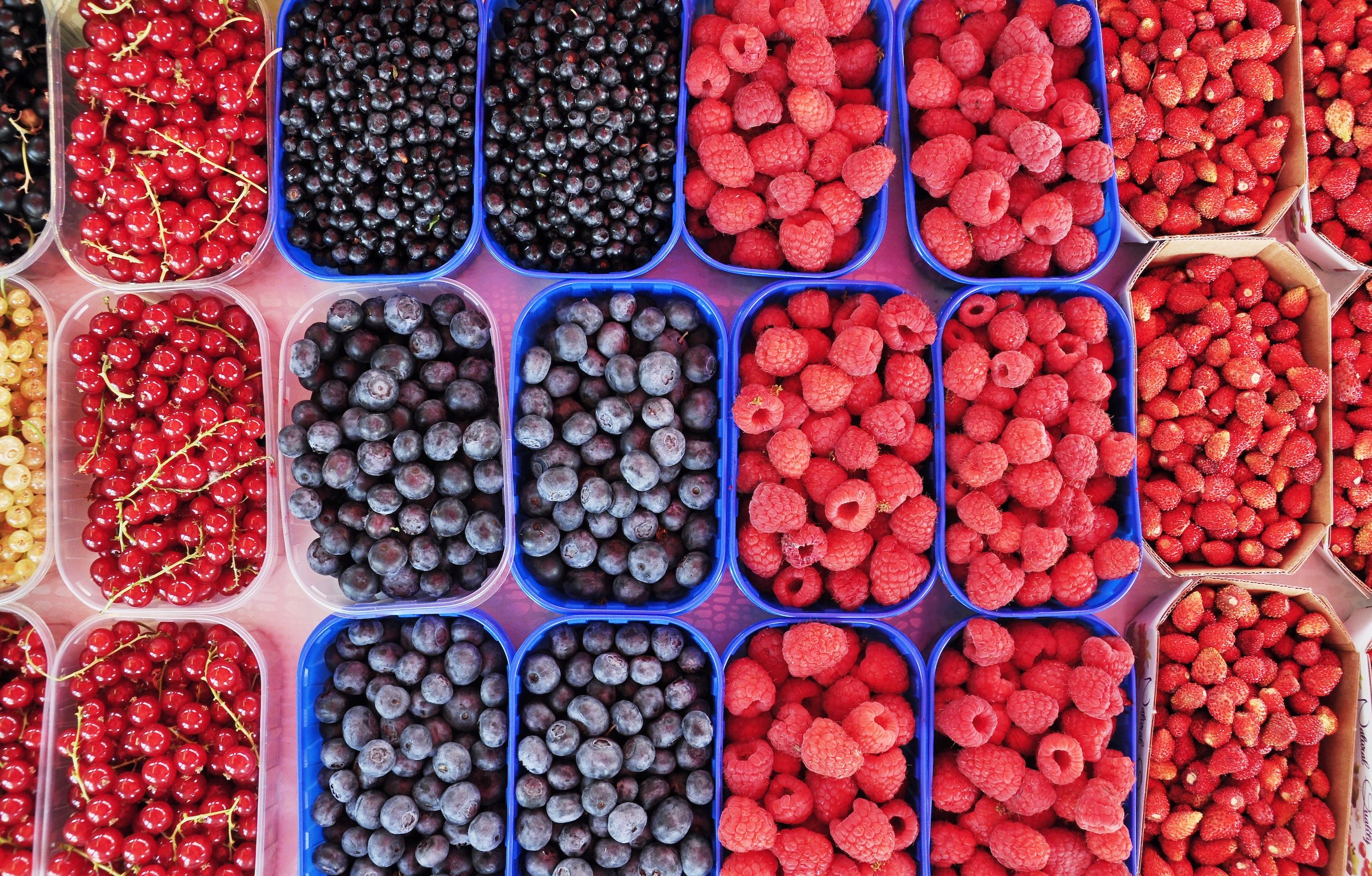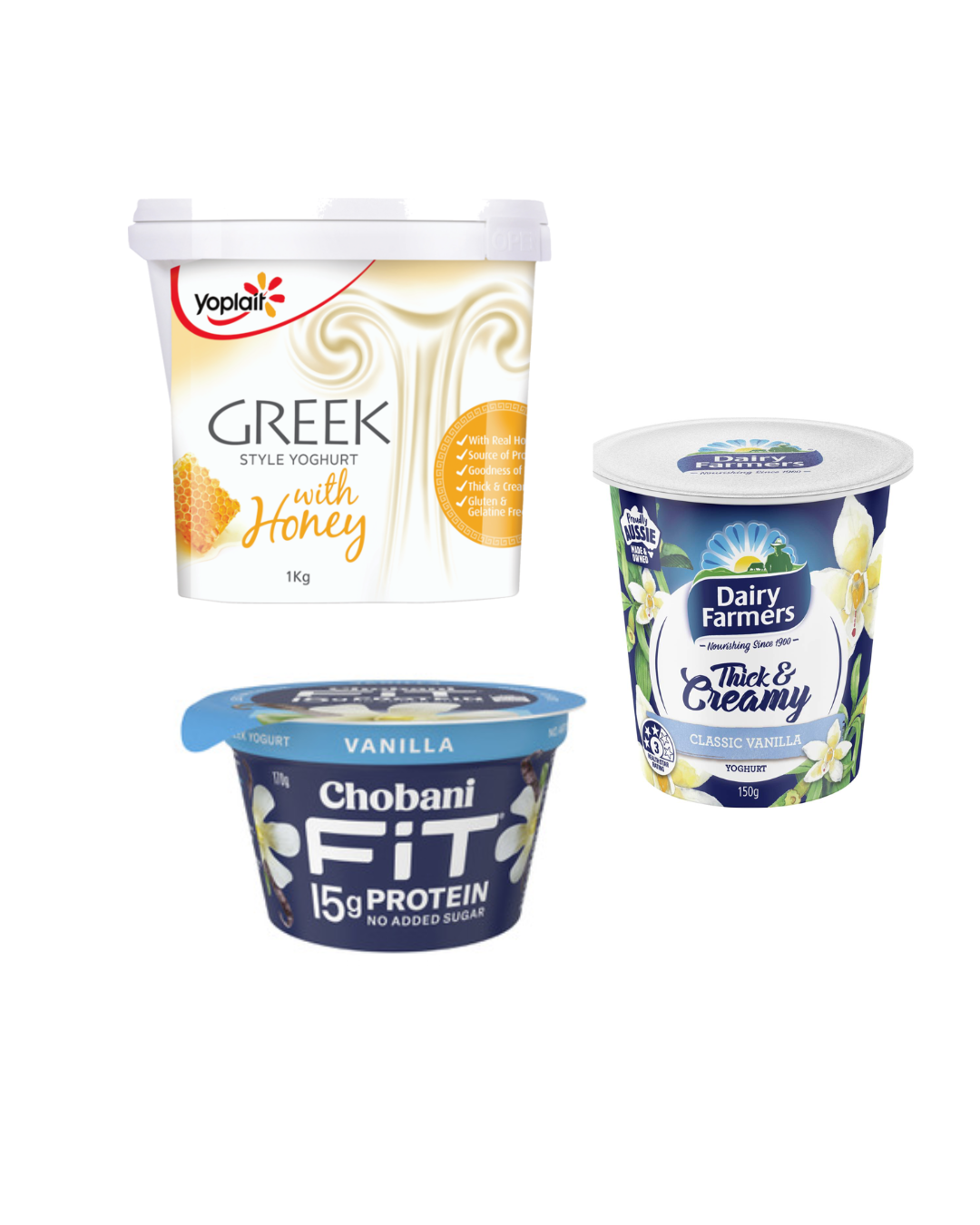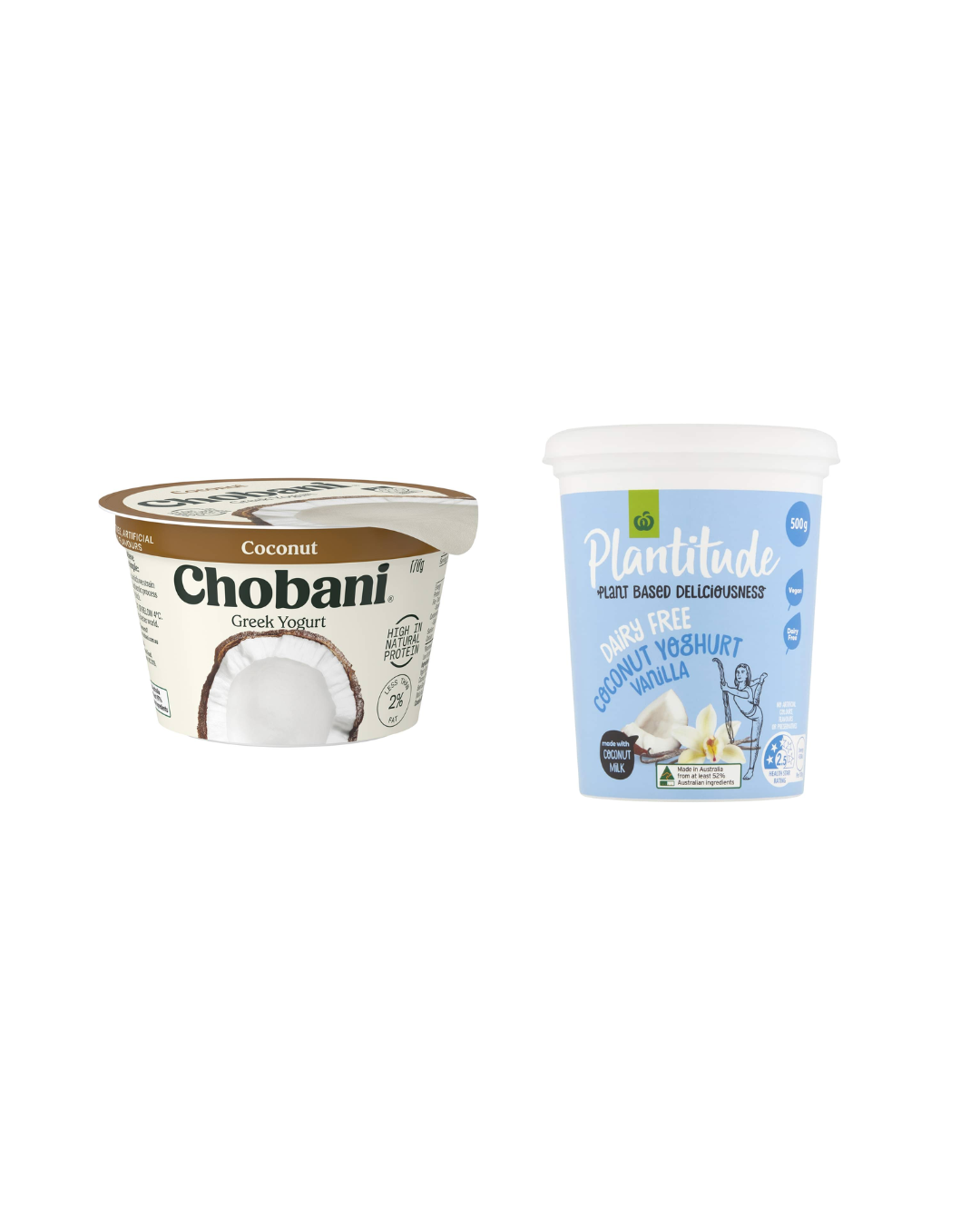How to Choose a Healthy Yoghurt
I’m sure at some point we’ve all walked into a supermarket isle and been overwhelmed by the amount of yoghurt options on the market, I know I have! Between Greek yoghurt, flavoured yoghurt or even plant-based options it hard to know where to start.
Yoghurt is often considered a healthy option, however, these days, sadly many are packed with a lot of added sugar, flavours and colours or preservatives.
If you choose the right yoghurt, it can have many health benefits and contribute nutritionally to our diets as they are often high in protein, calcium, vitamins and live culture or probiotics, which are great for enhancing our gut microbiome. These nutrients can provide protection for our bones and teeth, help improve digestive problems and help boost our immune system.
To help you make that decision a bit easier, I’m going to highlight some of the key things to look for when choosing which yoghurt to buy!
Ingredients
First of all, CHECK THE LABELS (sick of me saying it yet!?). This is the simplest way to determine whether a yoghurt is actually good for you. If you’re not sure where to start with reading food labels, you can find everything you need to know HERE!
Yoghurt ingredients should be simple and natural, all you should be finding in the ingredients list is milk (or the plant based option eg. coconut) and the culture. So, if you’re reading the ingredients list of your fave yoghurt, what should you be looking out for?
Milk Solids
One ingredient that is often found in yoghurt is ‘milk solids’, sounds like a natural product, but what actually are they? Milk solids are a highly processed ingredient, essentially, after all the water is removed from milk, a dried powder remains, and these are the milk solids.
Although the description of what milk solids is above may seem relatively natural, they are often filled with other chemicals and additives. Some of these include calcium chloride, citric acid and butylated hydroxy anisole (a common waxy preservative). Though not all milk solids contain these nasty additives, it is impossible to tell by just reading ‘milk solids’ in an ingredients list.
Milk solids are often added to yoghurt as they provide a richer, creamier feel to the yoghurt. You will quite often find these in low-fat yoghurt options, to make up for the lack of extra cream and fat. Milk solids are added to almost all yoghurts so it is hard to choose one that is without, though some companies do include ‘organic mild solids’ in their ingredients list so they could be the better option.
Added Flavours
Personally, I recommend avoid purchasing flavoured yoghurts all together, whether the flavour is natural or not. Flavours are added to SO many yoghurts and manufacturers aren’t required to include the list of ingredients that make up those flavours. Artificial flavours are often made up of 50-100 different chemical ingredients!! We all know that nature knows best here at Natural Spoonfuls, and these synthetic flavours certainly don’t align with that idea!! We need to also be wary of “natural flavours” more on whether these are natural here.
So, instead of choosing a yoghurt that is already ‘flavoured’, try flavour them yourself! I love to choose a simple, organic plain yoghurt (I’ll tell you which ones are best a little further down!) and add in some of your favourite fruit instead: berries, banana, mango, passionfruit (the list is endless!!). This is such an easy way to reduce the number of additives in your diet, and it’s much tastier in my opinion!!
Sugar
Refined sugar is an ingredient you’ll often see in yoghurts. These sugars are extremely processed and offer no nutritional value to us. These sugars are often so processed that they can act as an ‘anti-nutrient’ and can decrease our bodies ability to absorb important nutrients such as calcium, magnesium and potassium.
If that’s not a good enough reason to stop consuming refined sugars, I don’t know what is. Like I said before, choose a plain yoghurt and add your own sweetness if you want to, try adding raw honey, pure maple syrup or find more natural sweetener options here.
Coconut Yoghurt
Ok, so we’ve covered traditional yoghurt, what to look out for and what is considered good, so… how about dairy free alternatives? Over the last few years there has been a HUGE increase in the amount of plant based (particularly coconut) yoghurt brands available, but how do we know which ones are better than others?
Traditionally, yoghurt is made up of only 2 ingredients, milk and yoghurt cultures, so when we’re choosing a dairy free option, we want to be looking for a similar thing.
Ideally when choosing a coconut yoghurt, we want the ingredients to be relatively similar, coconut (cream, milk or flesh) and yoghurt cultures. Simple as that!! Any other additives, like the ones we covered above are unnecessary, but are often added for different purposes, including to thicken and add creaminess, stabilise yoghurt and prevent splitting, add sweetness and extend shelf life.
It isn’t always possible to avoid all these ingredients when choosing a coconut yoghurt so ill break down some of the best and worst in a little while.
Another excellent option when it comes to coconut yoghurt is to make your own!! Personally, I use Kultured Wellness to make my own, which is actually much more cost effective! And don’t worry, it’s not as hard as you may think!
Kefir
Kefir can be a great way to mix it up too. If you haven’t heard of kefir before, it is a fermented milk drink, similar to a thin yoghurt that is made from kefir grains and a specific type of culture. Kefir is full of probiotics which are full of health benefits, it is also low in lactose and packed with vitamins and minerals. This could be a great option for anyone who is sensitive to lactose!! The taste of kefir may not be for everyone, or may not be to your liking straight away (it is quite sour), but try adding some of the natural flavours and sugars we talked about above before writing it off completely!!
Now that we know what to look out for, lets dive into which yoghurts and brands to avoid and which ones are the best on the market
Traditional dairy yoghurts
AVOID
Dairy Farmers – Thick and Creamy classic vanilla
Ingredients:
Milk, milk solids, water, sugar, cream, thickener (modified starch), natural flavours, lemon juice concentrate, live yoghurt cultures
Yoplait – Greek style yoghurt with honey
Ingredients:
Milk solids, skim milk, cream, water, sugar, honey, thickener (modified starch), flavour, acidity regulatory (citric acid), preservative (potassium sorbate), live yoghurt cultures
Chobani FIT – vanilla
Ingredients:
Low fat yoghurt (90%) [skim milk, enzyme (lactase), live yoghurt cultures], vanilla blend (10%) [water, rice starch], natural flavours, vegetable gum (locus bean gum), acidity regulators (citric acid, sodium citrate), stevia leaf extract, natural colour (caramel), vanilla bean, salt
BETTER
Five:am organic natural yoghurt – no added sugar
Ingredients:
Organic milk, organic milk solids, milk solids, live cultures (incl. probiotics acidophilus and bifidus)
Jalna biodynamic whole milk yoghurt
Ingredients:
Biodynamic/organic: pasteurised whole milk, non-biodynamic/organic: (<5%): milk solids, aBc probiotics
Tamar valley dairy Greek style yoghurt
Ingredients:
Coconut Yoghurts
AVOID
Chobani Greek yoghurt – coconut
Ingredients:
Low fat yoghurt (82%) [skim milk, live yoghurt cultures], coconut blend (18%) [water, sugar, coconut (10%), natural flavours, vegetable gum (locus bean gum, fruit pectin), acidity regulators (malic acid, sodium citrate)
Woolworths Plantitude vanilla coconut yoghurt
Ingredients:
Water, coconut milk (41%), sugar, corn starch, natural flavour, vanilla bean seeds, acidity regulators (sodium citrate, malic acid), lactic starter culture
BETTER
COYO natural coconut yoghurt
Ingredients:
Organic coconut milk (96%) [organic coconut cream, water], organic tapioca starch, chicory root fibre, live vegan cultures
Coles dairy free coconut yoghurt
Ingredients:
Coconut milk (96%) [coconut cream, water], tapioca starch, cultures
As you can see in this list of traditional and coconut yoghurts, even the ‘better’ yoghurts contain some of the ingredients I said to lookout for. It can be hard to find a yoghurt that contains NONE of the additives, but it’s all about choosing the BEST option there is. Opt for a yoghurt that has the least amount of additives.
So, when you’re at the supermarket next, choose Greek or plain yoghurt, don’t go with the sweet or fancy flavour stuff, they are PACKED full of sugar and often contain ‘natural’ or artificial flavours and colours. Flavour and sweeten yourself, its SOO much better for you, a great way to get more variety in your diet and much more fun!
Want more?
My Low Tox Food Program is my signature program and honestly my true passion. It will help you get back in touch with REAL food. I go through every food product imaginable, giving you the confidence that what you are adding to your shopping trolley is free of nasties, additives and is actually going to nourish your body.
After some more nourishment?
Check out these articles!
· Get Glowing Skin through the power of FOOD
· How to Choose a Plant-Based Milk
· Weight not budging? Try these tips!

